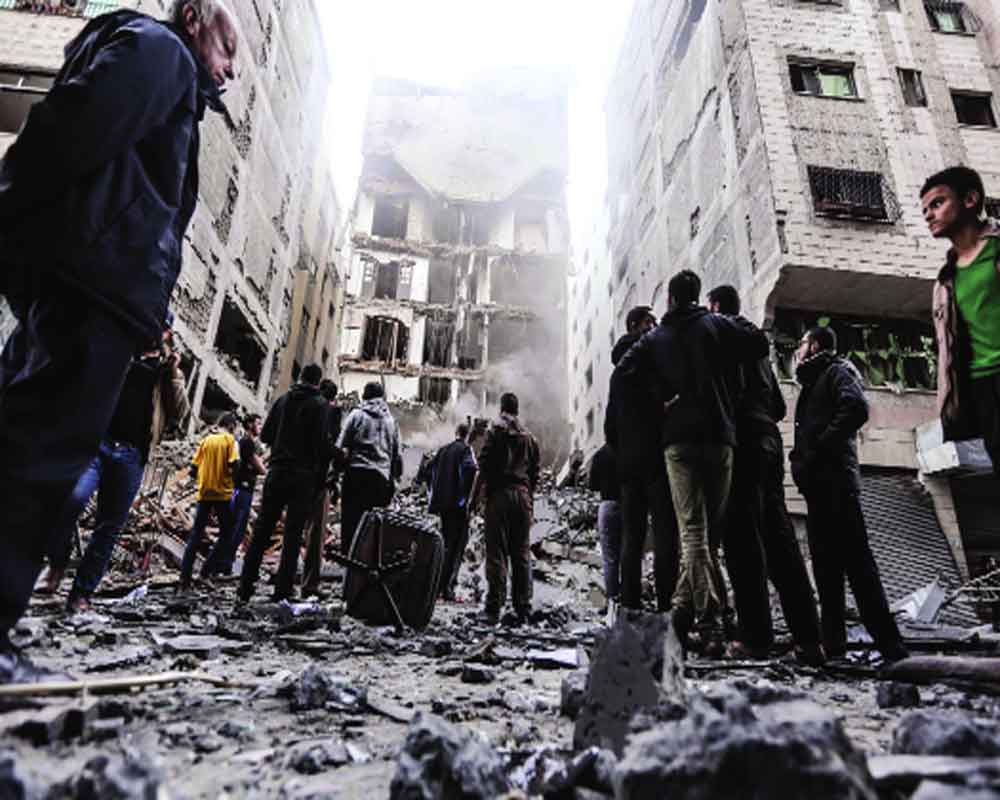Bloodshed and unrest in West Asia are not a good omen for world peace
The worst fears about the war spilling over in West Asia are coming true. The region is always simmering, marked by conflicts, regional power struggles and religion-related intricacies. The politically unstable land is now a virtual warzone with key players such as Israel and the Hamas in Gaza and Hezbollah in Lebanon disrupting peace. Apprehensions that Israel's war in Gaza could spread across came true as twin explosions have ripped Iran, claiming more than 100 lives following a strike in Lebanon that killed the Hamas's deputy leader. More than 200 other people were wounded when the blasts, about 15 minutes apart, struck mourners commemorating slain Revolutionary Guards Gen Qasem Soleimani. Israel and Iran have long been bitter enemies. Violence involving Iran-backed groups in Lebanon, Iraq, Syria and Yemen has spiked during the Gaza war. There have been repeated, deadly exchanges of fire across the Lebanon-Israel border, attacks on ships in the Red Sea area vital for global trade, and strikes against US-led coalition forces in Iraq and Syria. In a nutshell, West Asia is on fire. Lebanon's Iran-backed armed group Hezbollah blamed foe Israel for the strike in its Shiite Muslim stronghold of southern Beirut. This could escalate the war as Hezbollah has vowed that the killing of Aruri would not go unpunished. Lebanon, situated at the crossroads of West Asia, has been a focal point for geopolitical manoeuvring.
Hezbollah, a Shiite militant group with political and military influence, has emerged as a significant player in the region. Backed by Iran, its involvement in the Syrian civil war and ongoing tensions with Israel add a layer of complexity to the regional dynamics. The group's ability to exert influence beyond Lebanon's borders raises questions about the balance of power in the region. Iran, a major player in West Asia, has experienced a series of mysterious explosions, adding a new dimension to the regional unrest. Economic woes, international sanctions and domestic discontent contribute to the complex political landscape within Iran. The repercussions of these events are not limited to the country's borders. The Israel-Gaza conflict exacerbates tensions, Hezbollah's influence introduces an element of sectarianism, and the mysterious blasts in Iran raise concerns about internal stability. International actors, including the United Nations and other global powers, may intensify efforts to mediate conflicts and promote diplomatic solutions. A renewed focus on dialogue and negotiation could pave the way for regional stability. The emerging politics in West Asia, shaped by the Israel-Gaza conflict, Hezbollah's influence and the Iran incidents, present a complex and volatile scenario. As global attention remains focused on the region, international actors must engage in diplomatic efforts, promote dialogue and address the root causes of conflicts. Only through a comprehensive and cooperative approach can these nations hope to achieve lasting stability and foster a more peaceful future.
























